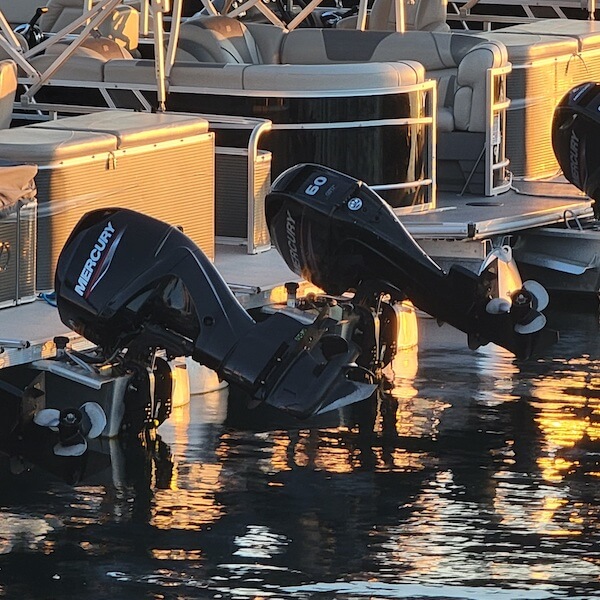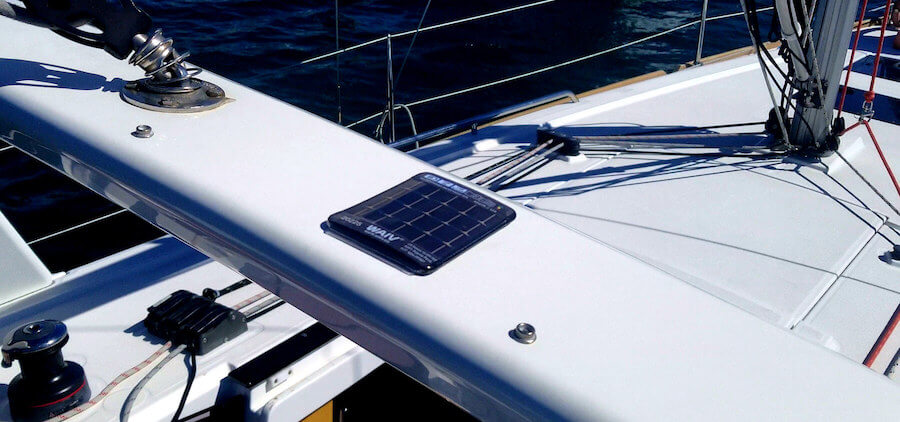
Recruiting and Retaining Seasonal & Tourism Employees In 2022
The Covid-19 pandemic disrupted the tourist industry in complicated ways. On the bright side, some outdoor recreation businesses like boat rental companies and ski resorts have seen record numbers of customers.
However, many businesses are struggling to operate at full capacity. According to The Colorado Sun, “a critical labor shortage and quarantined workers has delayed terrain openings and cut services, spurring a backlash among workers and local skiers.”
As winter recreation businesses try to manage the chaos of Covid, their summertime counterparts are bracing for impact.
Covid-19’s Impact on Seasonal Businesses
Seasonal businesses have been hit especially hard by Covid-19. In 2021, a research team from two Bucharest universities examined the pandemic’s effects on people’s travel habits. They found that travelers’ fears of infection changed not just their desire to travel, but also their preferred destinations. Seasonal companies in popular, crowded areas will likely have fewer customers. However, businesses that serve remote tourist attractions may enjoy increased traffic.
These researchers found that 27% of Oregonians experienced a change in employment status during the Covid-19 pandemic. Looking forward, 26% of survey respondents said they were thinking about changing jobs. However, three-quarters of the people in this study reported at least some employment satisfaction.
Covid-19 and Seasonal Companies
Of course, booming business and few employees are challenges many seasonal operations would love to experience. Depending on your niche and your location, your business may be seeing only a trickle of tourist traffic.
For example, a Serbian research team found a variety of reasons people are NOT visiting tourist locations during COvid-19:
- Travel Bans – Companies that depend on cross-border tourism are often out of luck.
- Lockdowns – Some people are literally unable to leave home.
- No Disposable Income – Many potential tourists can’t afford to visit, due to unemployment and underemployment.
- No Vouchers – Companies that provide travel vouchers to employees as vacation bonuses may stop this practice.
Food Service and Tourism
In January 2022, a team at the University of Oregon’s School of Planning reported on the unequal economic impacts of Covid-19. They highlighted widespread job losses in the hospitality and leisure industries.
Covid-19 doesn’t just put frontline employees at risk. People are avoiding all kinds of social interactions. Businesses like bars and restaurants have had trouble finding workers willing to risk infection. And many of their customers are staying home – or getting meals to go.
Boat Rental Companies
Many boat rental operations shut down in the early months of Covid-19. However, as people have realized how safe outdoor recreation is, most have reopened. Also, boat-sharing businesses are doing well.
Boat rental companies can conduct almost all of their business online. From scheduling to safety, the internet has been a boon to seasonal recreation operations. Most of the other necessary steps to getting a boat full of tourists out on the water happen outdoors.
Because most Covid-19 transmissions happen indoors, boat rental companies have good prospects. Provided they can recruit and retain the workers they need to stay afloat.
New Workplace Dynamics
In 2020, companies endured record-breaking turnover rates. Slowly and surely, businesses and workers are coming together again. However, employees’ willingness to resign during Covid has tilted the playing field in their favor.
The young people that often fill seasonal tourism positions are leading a wave of workers. For the first time in decades, union membership is on the rise. This sea change in workplace dynamics has been called…
Recruiting
If you’re having trouble attracting new workers to your company, you aren’t alone. Even the U.S. Army is having a hard time filling boots.
It may be a tough pill to swallow, but signing bonuses can help. In this labor market, the companies that get more employees will survive. Those that stick to “the old way of doing things” may well have to close up shop.
Do you want to cut labor costs? Is it worth trying to turn a slightly larger profit this season with a smaller crew? Do you really want to risk alienating your remaining employees?
Or, do you want to bite the bullet and do what it takes to survive Covid-19 as a business?
Retention
Retention is difficult, even during the onboarding process. Remember, an employee’s first days and weeks with your company are crucial. Be sure to check in regularly with new hires who may not feel comfortable bringing up issues. It’s far easier to ask for feedback than to chase down another new hire.
Though it’s always important to show empathy, the Great Resignation has made the human side of management absolutely essential. Protect your valuable employees from headhunters and the competition. Give them everything from praise to bonuses to time off.
Compensation
As difficult as it may be for employers, workers are now commanding higher wages. It might seem unfair to pay $20/hr for a position that once paid $15/hr. But those costs are likely far less than the costs of reducing your operating hours.
Like it or not, Covid has (at least temporarily) put owners and managers in a hard spot. It may be best to pay people a little more, just to stay in business until things return to normal.
Burnout
Seasonal employees face a different set of stressors than healthcare workers. But fatigue plays a big role in all kinds of work.
For example, Wisconsin’s frontline health workers were bolstered by National Guard troops in February 2022. These soldiers were trained as nursing assistants to help handle the ongoing onslaught of Covid-19.
People who work long hours during peak tourist seasons can rake in solid incomes. But this doesn’t last. At some point, they need a break.
Sure, some workers will press on, so they can provide remittances to family members. But, others will simply say “enough is enough”. People working frontline jobs faced many stressors before Covid-19. Eventually, this added “pandemic pressure” will cause them to simply walk away.
Team Management
Now, more than ever, efficiencies matter. You may need to manage a skeleton crew without burning out your remaining workers. You may need to serve a record-breaking number of clients. And you need to give people appropriate time to rest and relax – so you don’t lose any (more) of your valuable employees.
If you’re in the boat rental business, Waiv is here to help. We provide powerful team-management GPS-tracking software. You can know exactly when boats are coming and going. So you can get your shore work done and still be on the docks when your renters return.
Various Worker Types and the Pandemic
High School Students
Several states are changing labor laws so the youngest workers in the United States can work longer shifts. According to The Guardian, teenage workers in the U.S. have achieved a dubious landmark. For the first time, people aged 16-19 are more likely to be employed than people in their early 20s.
College Students
Student workers have always made up a significant portion of the tourism workforce, due to their increased availability on weekends (compared to older workers with families). These workers also enjoy extended Summer and Winter breaks from college that can mean plenty of work hours for their employers.
Specialists
Of course, not all seasonal workers are unskilled.
Think it through. A cafe can train someone fairly quickly to cook french fries and run a cash register. But, what about the person who manages them? Who orders the fries? Who has the people skills and organizational skills you need to keep your margins strong?
A ski resort can hire just about anyone to line people up at the ski lift, but what about instructors? What about Ski Patrol? What about the skilled technicians who keep ski lifts running every day – and the snow machines running every night?
In the summer, marine technicians are the lifeblood of the boating industry. However, this older group of workers is more vulnerable to (and wary of) Covid-19 than their younger counterparts. And many of them were already slowing down before Covid. Older marine techs typically work fewer hours in anticipation of retirement. They may even switch to less physically-demanding positions in retail or food service.
The marine tech profession attracts fewer people than it did in the past. Today’s schools are closing down shop classes and encouraging students to do other kinds of work. Even before Covid, young people were leaning toward tech jobs and thinking twice before getting their hands dirty. Given current trends, marine technicians should continue to be in incredibly high demand for years and decades to come.
Migrant Workers
People who must travel long distances to find employment in wealthy countries are especially vulnerable to Covid-19.
David Koh, of the Universiti Brunei Darussalam, studied Covid rates among migrant workers. He reported that 88% of infections in his small, rich nation took place in worker dormitories. Though the government stepped in with rigorous testing, 24 dorms of people had to endure 14-day quarantines.
Of course, many countries (including my own) house overseas workers in low-grade facilities. This is especially true of tourist areas, such as Michigan’s Mackinac Island. Because of Covid-19 restrictions, many migrant workers in the tourism industry (who often work 12-16 hour shifts) are not able to enter the United States. So, the iconic island is marketing itself as a good place for college students to work over the summer.
But, let’s face it. It will take 2-3 college kids to take the place of each migrant worker willing to work incredibly long hours for incredibly low wages. I know. I’ve met some of these people as a temporary worker on the Island and their work ethic is truly amazing.
Long-Haulers
Seasonal businesses depend on a few long-term employees who come back year after year.
Some enjoy the perks of the job (free ski passes, boat access, etc.). Some just love being part of a tight-knit beachfront or mountain community. Others are locals who work part time during the off-season and rely on peak season wages to get ahead. Some are school teachers who want to squeeze some extra income from their summer vacations.
These reliable long-haulers hold things together at countless companies. However, this group of typically older folks may choose not to return. The risks of catching the newest Covid variant are often too extreme for this group of workers.
A New Normal
In 2021, a team of Spanish academics predicted that countries that depend on tourism will need years to recover from Covid disruptions. They highlighted the need to protect natural areas and promote culture, history, and the arts. They also reported a need for more tourist services, information technology access, and transportation infrastructure.
Your seasonal business may see a surge in activity during Covid that fades as people return to business-as-usual. Or, you may be able to keep them coming back year after year. Of course, you may experience a dip in tourism that takes years to recover from – if ever.
Every business, locale, and cultural context is different. But the fundamentals are the same across the board. Whether you operate in an emerging tourist economy or an established recreation area, safety is key. You need to keep your customers safe and happy – and protect your capital investments.
If you run a seasonal/recreational boat rental company, rely on Waiv to track your watercraft – and the precious cargo inside. We help you manage your teams, increase efficiency, and keep your vessels secure.


